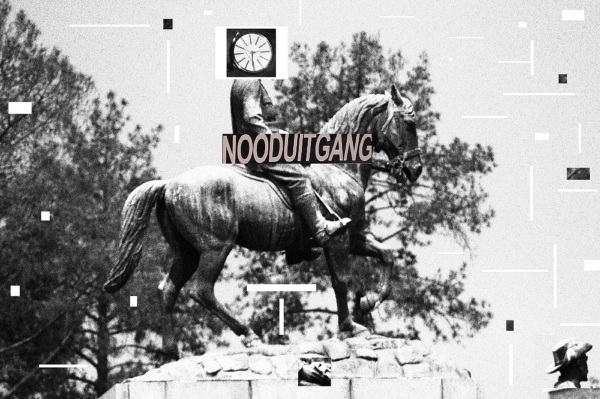This essay will critically analyse the outcome and reasoning of the Salem judgment with reference to African Jurisprudence to substantiate the argument that the outcome of the Salem case is unjust to the extent that the Constitutional Court opted for an accommodation of entitlements of the Salem Community and the Salem party to the Salem Commonage. The purpose of this essay is to illustrate the jurisprudence that exists in South Africa is a Western and apartheid jurisprudence that has the potential to lead to injustice which can be illustrated in the judgement of the Salem case.
The outcome is unjust based on the idea that the jurisprudence that is practised in South Africa is a Western colonial and apartheid construct, that is incompatible with the justice that is needed in South Africa, a country created through colonial conquest. The main context in which this injustice is enforced is through the western construction of the modern nation state South Africa, consisting of the executive, the judiciary and the legislature, created to secure the property and security of a community of persons, in the African context those communities would be the colonists and settlers.
South Africa was a territory occupied historically by Indigenous Africans before the arrival of the colonisers. South Africa as we know it today is a modern nation state that resulted from the balkanization of Africa, constructed at the Berlin Conference where colonial leaders carved out and laid claim to territories in Africa giving themselves jurisdiction and power to govern. The modern nation state was influenced by thinkers such as John Locke who advanced the idea that law is not separate from the state because the nation state is a community of people who want to safeguard themselves and their property rights through the mechanism of law. The modern South African nation state can be viewed as a community of people who want to protect their property rights, the issue arises when identifying whose property rights needs protecting in a state that was created to serve the interests of settlers and colonists.
The apartheid nation state did not have a limit on the power of parliament which led to judiciary and legislature being used to enforce racially discriminatory laws legitimately such as the Native Land Act. The current South African nation state has a limit on the power of parliament which is now subject to a Constitution which empowers common law ,which is Roman-Dutch and English law, over customary, indicating the presence of a legitimate western and apartheid jurisprudence enjoying superiority over African jurisprudence. The Salem case is an example of how the mechanisms of the modern nation state, such as the judiciary, have been used to entrench the property rights of land acquired through injustice.
The Land Claims Court based its judgement on the requirements of the Restitution Act in favour of the Salem Community that they were entitled to the restoration of the commonage because they had met the requirements for a successful claim to restoration. The Constitutional Court stated that this would be unjust. The Salem Party appealed this decision and the case was heard at the Supreme Court of Appeal where it was decided that the idea of the existence of rights is assessed from the perspective of restoring the dignity of victims of dispossession, this resulted in the Court dismissing the appeal of the Salem Party and upholding the claim of the Salem Community. The Constitutional Court asserted that neither the Salem Community or the Salem party held exclusive rights and exclusive occupation to the commonage, the requirements of the Restitution Act however does not state the exclusive rights or occupation are a requirement, so the reliance on exclusivity of rights and occupation for the judgement is questionable.
The Constitutional Court stated that its purpose is to ‘balance’ and ‘reconcile’ the rights of competing parties in order to come to a just outcome and that the judiciary should not privilege the ownership rights of one group over another. The Constitutional Court stated that although the rights to the Commonage were acquired as a result of colonial laws this should not overshadow the historical justice the Salem Party was entitled to. According to the Court this claim to justice would involve an accomodation of both groups entitlement to the Salem Commonage.
The Constitutional court recognises the customary law interest of the Salem Community but does not do so in a way that affords the customary law interest power over common law interests because it affords legitimacy to the acquisition of land through colonialism and the apartheid government by stating that the Salem party has a claim with regard to historical justice. However even within Western jurisprudence and philosophy there is an idea that ‘jus ex injuria non oritur, a legal right or entitlement cannot arise from an unlawful act or omission,’ and ‘ex injuria sua nemo habere debet, a wrongdoer should not be enabled by law to take any advantage from his action.’ These principles when applied to the Salem case would suggest that the outcome was unjust and that the Court Should have granted the restoration of the Salem Commonage to the Community taking historical injustice into account. However because these principles are applied within the modern nation state which is a western construct, in the context of Africa which was historically seen as the property of the West, the principles will lead to injustice. These principles when applied in Africa have resulted in injustice towards the indigenous Africans because they are not principles that were applicable to Africans because they were not recognised as human beings or on equal footing but seen as inferior. When applied to the Salem case it is evident that the Constitutional Court reinforced the superiority of western jurisprudence over African jurisprudence because it is a product and instrument of western jurisprudence, incompatible with the needs of social justice.
When one asks where this notion of justice, with regard to the Constitutional Court judgement, may come from it could be argued that its stems from Ubuntu which is said to be in line with the Constitution and a form of African Jurisprudence, which would be the false notion of Ubuntu because it fails to take into account the real interests of the indigenous African but is utilised by those who have property interests to retain unjustly attained property. True Ubuntu demands that justice in its true sense be implemented which would require the restoration of the salem Commonage to the salem Community.
The Salem case is an example of the injustice that may arise for South Africans in a modern nation state that was created to serve the interests of colonialists and the apartheid government and those who retain property rights through Western jurisprudence and how in a democratic South Africa the creation of the Constitution has been used as a right to conquest and a right to retain unjustly acquired land. African jurisprudence if applied to the Salem case would require historical injustices to be addressed and requires the restoration of territory from which Africans were dispossessed.
Word: 179
BIBLIOGRAPHY
CASES
Salem Party Club and Others v Salem Community and Others 2018 (3) BCLR 342 (CC).
BOOKS
Murungi, John Introduction to African Legal Philosophy (2013).
ARTICLES
Dladla, Ndumiso “Towards an African critical philosophy of race: ubuntu as a philo-praxis of liberation.” Filosofia Theoretica: Journal of African Philosophy, Culture and Religions 6.1 (2017) 39-68.





